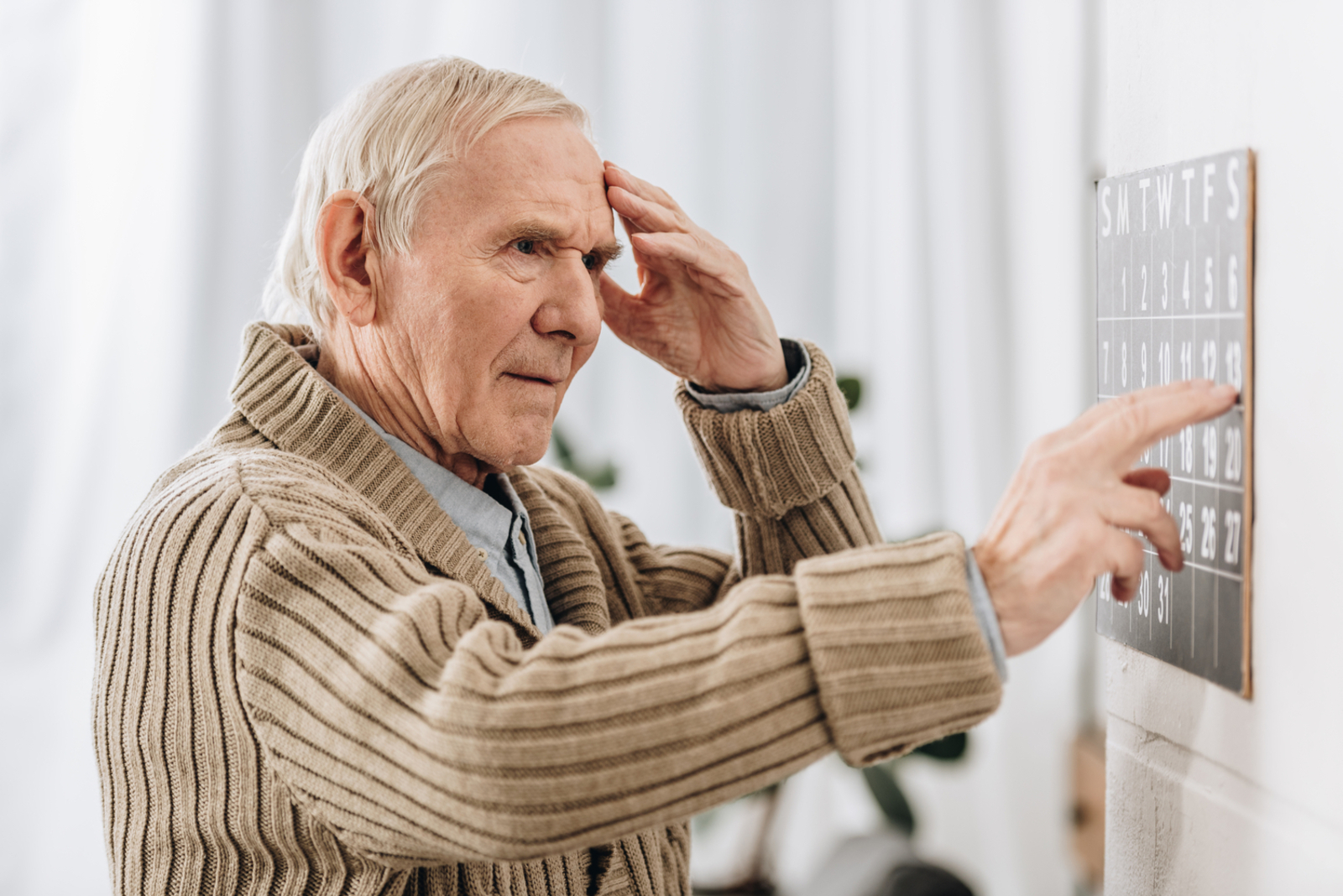
7 Early Symptoms Of Dementia & Alzheimer’s
Dementia is an umbrella term for several different cognitive conditions, with the most common being Alzheimer’s. When you think of dementia, or Alzheimer’s, you might think of things like misplacing items, getting lost, repetition of the same things when talking to the same person, and difficulty planning tasks. While all of these things may occur, it is more than that—when the disease progresses, patients lose their ability to do anything for themselves, even simple everyday tasks, and they may require long-term care. That’s why it’s important to catch the signs of dementia early on, so the patient can begin treatment and slow the progression of the disease. Here are 7 early symptoms of dementia and Alzheimer’s:
1. Forgetting recently learned information
Whether this shows up as asking the same questions repeatedly, forgetting important events or dates, missing appointments, or an increased reliance on memory aids (like writing notes), these are signs of dementia. While every once in a while it’s normal for us to be forgetful, if it’s occurring frequently and becoming more severe, it’s a good idea to seek medical advice.
2. Challenges with planning and problem-solving skills
If you or a loved one is finding it hard to keep track of monthly bills, experience difficulty in following a plan, find it challenging to concentrate, or are taking longer to do things than usual, this can be an early warning sign of dementia.
3. Difficulty completing tasks that are familiar
While at first it may be laughable when you or your loved one forgets to put on socks in the morning or forgets to serve the side salad with dinner, if it’s happening frequently, it should raise concern. Dementia often causes problems with completing familiar tasks, including dressing, remembering ingredients in a meal, remembering rules to a game, and so on.
4. Disorientation to time or place
The passage of time may be challenging for dementia patients to keep track of, and they may have issues understanding something if they aren’t happening immediately. Sometimes this disorientation can occur with their location—dementia patients can get lost on their own street and forget where they came from.
5. New problems with words when speaking or writing
Dementia patients may face challenges following a conversation. When speaking, they may have trouble finding the right words, stop in the middle of a conversation and be unable to continue, be unable to think of a familiar word, or use the wrong name for something.
6. Poor judgment
Due to changes in cognition, dementia patients may have decreased or poor judgment when it comes to making decisions, like spending too much money; how to take care of themselves, like paying less attention to grooming; or how to behave in social situations, like not following social rules/norms.
7. Changes in mood or personality
For some, this may be the hardest part of watching yourself or a loved one go through dementia. Many patients experience changes in mood or personality, whether they become more aggressive, anxious, depressed, or fearful, it can be difficult to deal with. You want to make sure to treat the patient with patience and kindness, get them medical attention when needed, and avoid any triggers that may cause the patient to feel a certain way.



